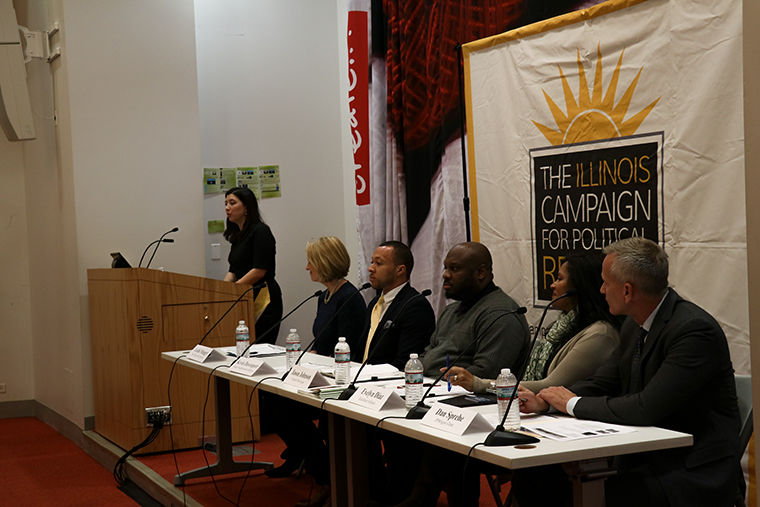Experts: Chicago needs collaboration, neighborhood investment
January 24, 2018
While Chicago is still in the running for Amazon’s second headquarters, economic development advocates and politicians agree that more investments are needed in local neighborhoods for the city to thrive.
At a Jan. 17 panel titled Inspiring Investment in Chicago Neighborhoods, hosted by the Illinois Campaign for Political Reform, experts in economic development discussed ways to spur economic growth in Chicago neighborhoods. The forum, held at 600 S. Michigan Ave., was moderated by Kristin Barrett, a senior director for the University of Chicago Polsky Exchange, a startup hub.
Evelyn Diaz—president of Heartland Alliance, a Chicago-based anti-poverty organization—said disinvestment in low-income neighborhoods has had devastating effects over time. The most tragic of these effects has been “an insidious cycle of poverty, violence and trauma,” she said.
“In order to address Chicago’s violence, we have to do more than just focus on policing and traditional violence prevention programs,” Diaz said. “We also need to be investing in economic development, economic opportunity and mental health at the community level.”
Jason Johnson, Director of Entrepreneurship at the Chicago Urban League—a group that advocates for economic, educational and social progress for the African-American community—echoed Diaz’s comments, adding that providing opportunity to small businesses can drive employment growth. While placing a Target or Walmart in a community can bring momentum, he said the city should focus on and allocate more support toward local businesses.
The city and state’s economy can also benefit from more investment in the tech industry, said Leslie Munger, Illinois Deputy Governor. She advocated for a group called Discovery Partners Institute, which collaborates with colleges in the state to provide opportunities for engineering, entrepreneurship and business students to create startups only in the state.
Diaz referenced the program Ready Chicago that collaborated with her organization, Heartland Alliance, as well as others. Ready Chicago reduces shooting and homicides by coupling information gathered by U of C’s crime lab on people who are at the heart of the city’s violence, with street intelligence and activity. Then, rather than approaching crime from law enforcement intervention, Ready Chicago uses a social services intervention, specifically helping offenders get transitional employment and cognitive behavior therapy.
“Where the city has repeatedly failed is in [not] making those opportunities available to people living in high poverty communities, the people who need jobs and economic opportunity the most and whose participation in those projects would yield the biggest benefits for Chicago as a whole,” Diaz said.








